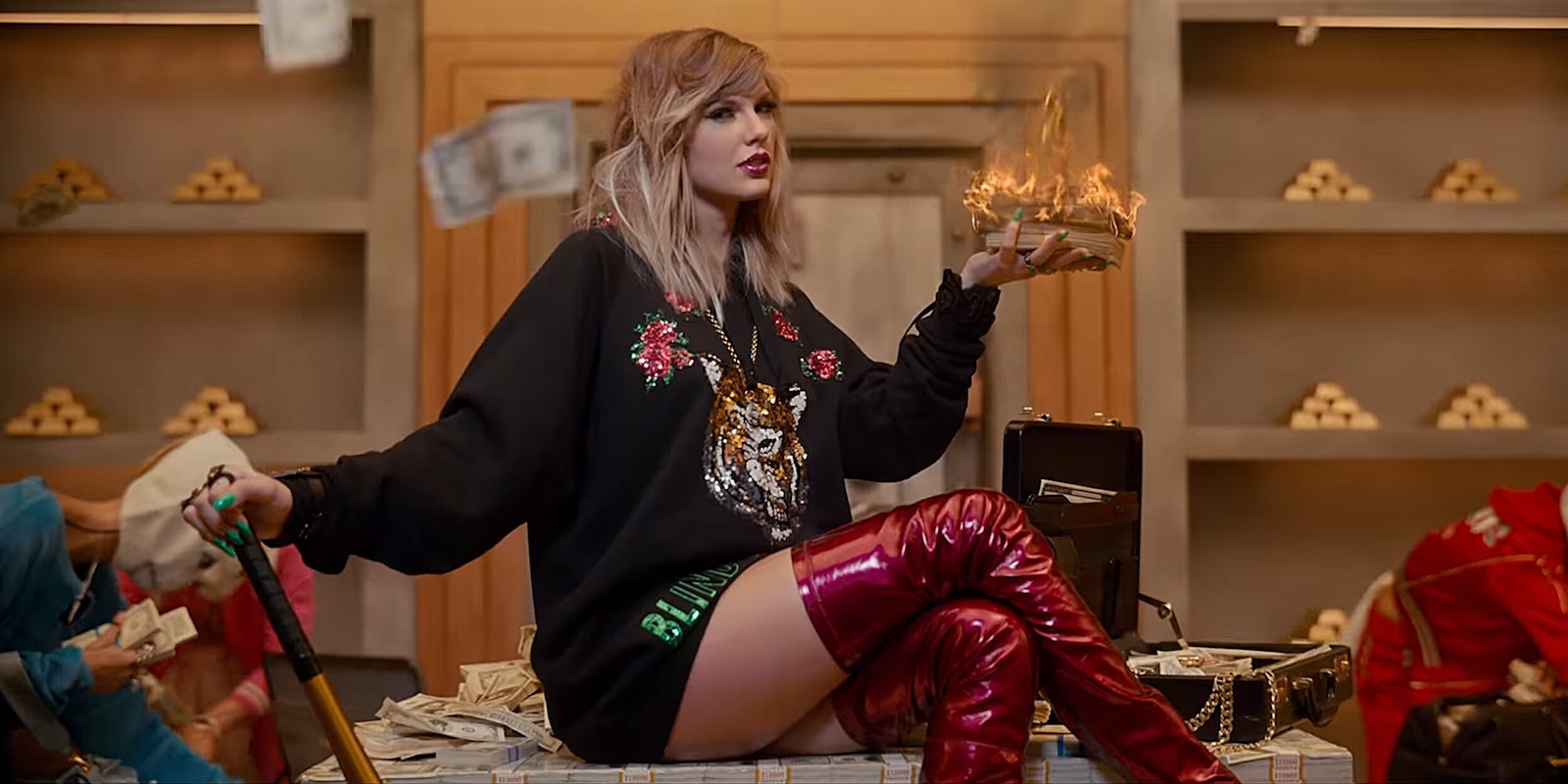In a year filled with confessional and heartbreaking pop from resistance-leading women like SZA and Lorde, Taylor Swift’s Reputation fades like Friday’s Instagram Story.
Amid 2017’s heightened political tensions, fans were hoping for a scathing persecution complex from a powerful woman in show business who earned her agency by writing winning pop music. After all, the buildup to the album, with lead single “Look What You Made Me Do,” teased her as an avenger with a thirst for blood. But while she makes veiled disses to Kanye West on songs like “Did Something Bad,” such moves feel inessential and ill-fitting.
Swift’s activism stops at exes and fake friends: Reputation is art that plugs its ears and closes its eyes when it comes to messaging. Yet it’s sharply aware of the pop space it’s joining.
Swift channels Hozier’s “Take Me to Church” piano balladry on “Don’t Blame Me.” She borrows the party cheer of Charli XCX on “This Is Why We Can’t Have Nice Things,” offering a knock-off that packs 90 percent less punch than Miley Cyrus’ “We Can’t Stop.” She seems to take a cue from FKA Twigs’ “Two Weeks” on “Dress.” (Just track the original’s “Higher than a motherfucker, dreaming of it, it’s my lovin’ (High)” refrain with the way Swift sings “take it off.”)
Swift is at her best on Reputation when she’s writing songs for her generation of privileged Americans who can afford to write off bars as decorative “dives on the East side.” On Reputation, she doesn’t shy from drinking for the first time in her career, name-checking whiskey on ice, beer in plastic cups, even an Old-Fashioned.
“So It Goes…” lands with EDM drops and rumbling snares. Swift sings with candor, worn and bloodshot, about meeting people in bars: “All the pieces fall right into place, getting caught up in the moment.”
“We can’t make any promises now, can we, babe? But you can make me a drink,” she adds on “Delicate.”
Swift’s reportedly in love with actor Joe Alwyn, and she’s turned that butterflies-in-the-stomach phase of a relationship into some compelling music.
“I’ll be cleaning up bottles with you,” she sings on “New Year’s Day,” the morning-after finale on a project full of optimistic romance. Sure, it’s the 15th song in a row about the vague personal life of Taylor Swift, but it fuses her celebrity lifestyle with populist appeal. It’s Swift at her best.
Swedish songwriter Max Martin produces nine of the songs, and Bleachers frontman Jack Antonoff works on the other six. They help Swift engineer tight-knit vessels—only one track dares venture beyond four minutes in length on the 55-minute project.
The record is a finely creased envelope and only strains when proceedings become overly tidy. Future’s warbly codeine drawl, for example, is sobered up and his raps are uncharacteristically over-enunciated on “End Game.” Not only does he become a superfluous cheerleader, but repellent nice-guy Ed Sheeran walks away with a biting, karaoke-ready performance and the better male vocal here. It’s those moments where you wish Swift was more interested in pushing creative boundaries.
In the end, Reputation will do little to change Swift’s. It’s a frustrating and at times soaring record. Yet Swift ensures she gets her happy ending, glitter on the dance floor and all.


